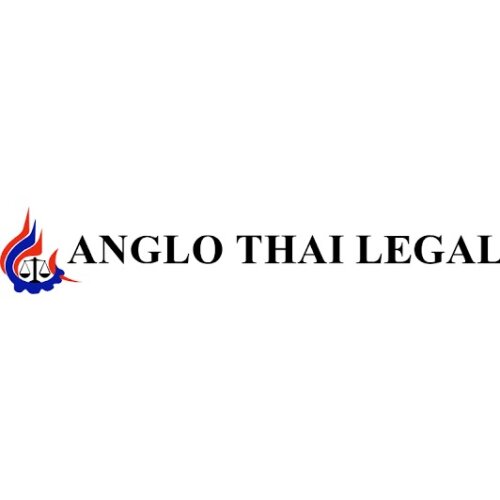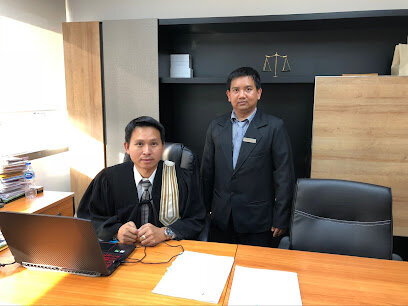Best Pension Lawyers in Bangkok
Share your needs with us, get contacted by law firms.
Free. Takes 2 min.
List of the best lawyers in Bangkok, Thailand
About Pension Law in Bangkok, Thailand
Pension law in Bangkok, Thailand, is influenced by the broader framework of Thai social security and labor laws. The pension system in Thailand is primarily designed to provide income security for retirees, consisting of both public and private components. The public pension, managed by the Social Security Office, is part of the mandatory contributions from both employers and employees. Private pensions are optional and offered through various financial institutions. Understanding the intricacies of the pension system, including eligibility, benefits, and legal obligations, is essential for both employers and employees to ensure adequate coverage and compliance with local laws.
Why You May Need a Lawyer
There are several situations where seeking legal advice regarding pensions may be necessary. Individuals might require assistance in understanding their entitlement and rights under the pension scheme, especially when experiencing issues with receiving benefits. Employers might need guidance on ensuring compliance with pension regulations to avoid potential liabilities or disputes. Additionally, expatriates and foreign nationals working in Bangkok may seek legal counsel to understand how their pension contributions interact with international agreements or their home country’s pension scheme.
Local Laws Overview
Key aspects of local laws regarding pensions in Bangkok include the mandatory contributions to the Social Security Office, which are required for most employees and employers. These contributions finance retirement benefits, disability aid, and other forms of social security. The legal framework also sets eligibility criteria, such as age and contribution duration, for receiving pension benefits. The Employment Termination and Severance Pay Act and Labor Protection Act are crucial as they outline rights related to retirement and pension benefits. Private pension schemes must comply with regulations set by the Office of Insurance Commission and the Securities and Exchange Commission of Thailand.
Frequently Asked Questions
What is the mandatory retirement age in Thailand?
In Thailand, there is no legally mandated retirement age, but 60 is generally considered the standard retirement age in the private sector. Public sector employees may have a mandated retirement age.
How are pension contributions calculated?
Pension contributions to the Social Security Fund are a percentage of the employee's salary, with contributions made equally by the employee, employer, and the government. The exact percentage is subject to the current rate set by Thai law.
Are expatriates required to contribute to the Thai pension system?
Expatriates working in Thailand and registered with the Social Security Office are required to contribute to the pension system, similar to Thai employees, unless exemptions are available under specific bilateral agreements.
Can I withdraw my pension contributions if I leave Thailand?
Employees who permanently leave Thailand may be eligible to receive a lump-sum payment of their pension contributions, depending on agreements and specific conditions set by the Social Security Office.
What is the role of private pension schemes?
Private pension schemes supplement the public system, offering additional retirement savings plans through employers or financial institutions, providing more tailored investment options for retirement.
How can disputes about pension benefits be resolved?
Disputes about pension benefits can be resolved through mediation, negotiation, or legal proceedings. Seeking legal advice early can help clarify entitlements and facilitate fair settlements.
Is it mandatory for employers to provide a pension plan in addition to social security?
Employers are not obligated to provide a private pension plan in addition to social security, but many offer them as part of comprehensive employee benefits packages to attract and retain talent.
How does one qualify for receiving a pension benefit in Thailand?
Qualification for pension benefits typically requires meeting criteria such as minimum contribution periods and reaching a certain age, as stipulated by the Social Security Office.
What happens to pension contributions if an employee changes jobs?
Pension contributions remain in the employee’s individual account within the Social Security system, and the accrued benefits can be accessed upon retirement, provided all eligibility conditions are met.
Are pension benefits taxable in Thailand?
Pension benefits are generally subject to taxation in Thailand. However, specific tax benefits or exemptions may apply, and it is advisable to consult with a tax advisor or lawyer for detailed guidance.
Additional Resources
For more information or assistance related to pensions in Bangkok, individuals can contact the Social Security Office of Thailand, where they can gain insights into public pension benefits and contributions. Also, the Office of Insurance Commission and the Securities and Exchange Commission can provide details regarding private pensions. Consulting with legal professionals specializing in labor and pension law is recommended for personalized advice.
Next Steps
If you need legal assistance concerning pensions in Bangkok, consider reaching out to a lawyer specializing in pension and labor law. Start by gathering all relevant documentation related to your pension contributions and benefits. Schedule a consultation to discuss your situation, clarify your rights, and explore solutions to any issues you may encounter. Engaging with a qualified legal advisor will help ensure compliance with regulations and safeguard your retirement benefits.
Lawzana helps you find the best lawyers and law firms in Bangkok through a curated and pre-screened list of qualified legal professionals. Our platform offers rankings and detailed profiles of attorneys and law firms, allowing you to compare based on practice areas, including Pension, experience, and client feedback.
Each profile includes a description of the firm's areas of practice, client reviews, team members and partners, year of establishment, spoken languages, office locations, contact information, social media presence, and any published articles or resources. Most firms on our platform speak English and are experienced in both local and international legal matters.
Get a quote from top-rated law firms in Bangkok, Thailand — quickly, securely, and without unnecessary hassle.
Disclaimer:
The information provided on this page is for general informational purposes only and does not constitute legal advice. While we strive to ensure the accuracy and relevance of the content, legal information may change over time, and interpretations of the law can vary. You should always consult with a qualified legal professional for advice specific to your situation.
We disclaim all liability for actions taken or not taken based on the content of this page. If you believe any information is incorrect or outdated, please contact us, and we will review and update it where appropriate.













